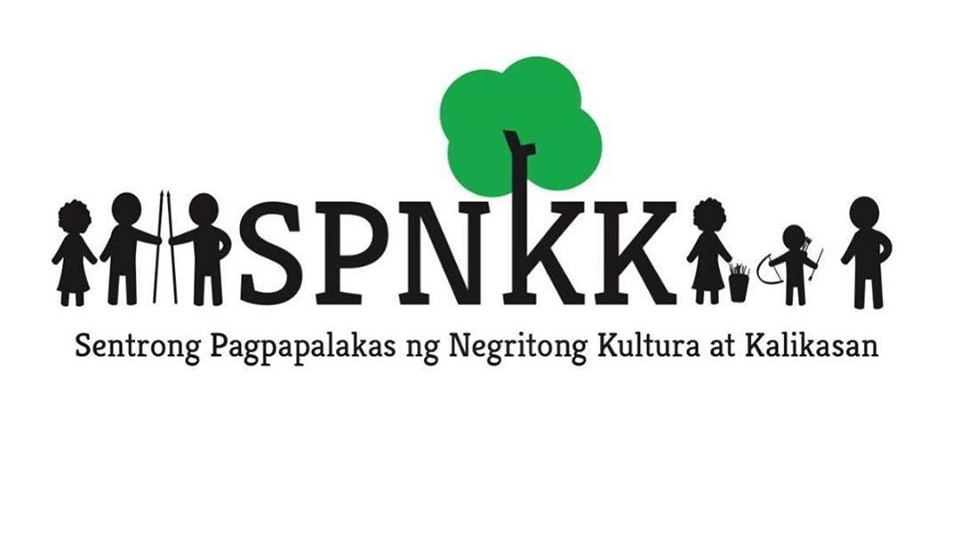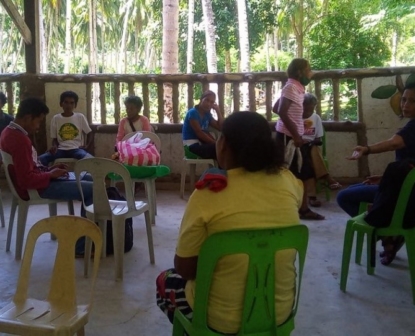Project
Building Voices: Empowerment as Defined by Hunting Gathering Societies in Transition
-
Amount Funded
19,257 EUROProject Duration
15 Nov 2019 - 15 Nov 2020 -
-
Lead organisation
Sentrong Pagpapalakas ng Negritong Kultura at Kalikasan, Inc. (SPNKK)
-
The sense of powerlessness was the impetus for Negrito leaders to formalise a network. This project power and the capacity to influence policy for the advancement of the interests of the most vulnerable indigenous groups in the country. The Sentrong Pagpapalakas ng Negritong Kultura at Kalikasan (SPNKK) came into existence as an umbrella network of the Negrito groups in the country. The network created a series of Negrito cultural revival festivals and development forums in various parts of the country beginning in 2010 and has served as a precursor to the establishment of the network. Today, SPNKK is expanding its reach towards effective advocacy confronting the Negrito communities in the Philippines. Issues include rights to protect and claim their ancestral land and its natural resources, forest conservation, access to appropriate education and recognition of the role of traditional healers in primary health care. Another focus is the empowerment of women and youth through building the capacity for leadership positions in the context of indigenous customary laws and practices.
-
Organisation
The sense of powerlessness was the impetus for Negrito leaders to formalise a network. This project power and the capacity to influence policy for the advancement of the interests of the most vulnerable indigenous groups in the country. The Sentrong Pagpapalakas ng Negritong Kultura at Kalikasan (SPNKK) came into existence as an umbrella network of the Negrito groups in the country. The network created a series of Negrito cultural revival festivals and development forums in various parts of the country beginning in 2010 and has served as a precursor to the establishment of the network. Today, SPNKK is expanding its reach towards effective advocacy confronting the Negrito communities in the Philippines. Issues include rights to protect and claim their ancestral land and its natural resources, forest conservation, access to appropriate education and recognition of the role of traditional healers in primary health care. Another focus is the empowerment of women and youth through building the capacity for leadership positions in the context of indigenous customary laws and practices.
-
Project
The Agta, Ayta, Ati, Ata, and Batak are indigenous peoples in the Philippines with a hunter-gatherer background. These communities have their own methods and customs governing resource utilisation and social structures that have kept their societies intact. As hunter-gatherers, they traditionally moved in mobile groups, planting swiddens, hunting, and gathering wild food from the forests. Given their present context they realise the need to unite and plan for the future in order to protect their long-term interests. This can only be accomplished if they are able to break their culture of silence and voice their concerns to the government. Recognising the difficulty in mobilising these communities to take positions on development issues, unity cannot be built overnight, but requires concerted effort to organise communities and to develop their ability to defend their rights to land and its natural resources. The project; Building Voices: Empowerment, as Defined by Hunting Gathering Societies in Transition, provides an avenue for these communities and organisations to come together to collectively plan and undertake activities, exchange experiences, and highlight critical issues affecting them. Sentrong Pagpapalakas ng Negritong Kultura at Kalikasan (SPNKK) works in partnership with Batak and Manide leaders to: 1) Develop active and critical participation of community members to address: (i) issues of access to resources and forest protection in their ancestral domains, (ii) land security, (iii) indigenous representation to local legislative councils, and (iv) other priority issues identified at the community level. 2) Articulate issues affecting these communities to a wider audience and develop an advocacy platform in defending their ancestral domains and their natural resources. 3) Provide the opportunity to exchange best practices in addressing community issues related to land and forest based resources. The project also helps its member organisations and communities to plan, implement, and direct their own initiatives in order to achieve their vision, mission, and goals. After a year, Batak and Manide communities will have internalised the fact that power can and should emanate from them and not from outside entities.
-
-
The Agta, Ayta, Ati, Ata, and Batak are indigenous peoples in the Philippines with a hunter-gatherer background. These communities have their own methods and customs governing resource utilisation and social structures that have kept their societies intact. As hunter-gatherers, they traditionally moved in mobile groups, planting swiddens, hunting, and gathering wild food from the forests. Given their present context they realise the need to unite and plan for the future in order to protect their long-term interests. This can only be accomplished if they are able to break their culture of silence and voice their concerns to the government. Recognising the difficulty in mobilising these communities to take positions on development issues, unity cannot be built overnight, but requires concerted effort to organise communities and to develop their ability to defend their rights to land and its natural resources. The project; Building Voices: Empowerment, as Defined by Hunting Gathering Societies in Transition, provides an avenue for these communities and organisations to come together to collectively plan and undertake activities, exchange experiences, and highlight critical issues affecting them. Sentrong Pagpapalakas ng Negritong Kultura at Kalikasan (SPNKK) works in partnership with Batak and Manide leaders to: 1) Develop active and critical participation of community members to address: (i) issues of access to resources and forest protection in their ancestral domains, (ii) land security, (iii) indigenous representation to local legislative councils, and (iv) other priority issues identified at the community level. 2) Articulate issues affecting these communities to a wider audience and develop an advocacy platform in defending their ancestral domains and their natural resources. 3) Provide the opportunity to exchange best practices in addressing community issues related to land and forest based resources. The project also helps its member organisations and communities to plan, implement, and direct their own initiatives in order to achieve their vision, mission, and goals. After a year, Batak and Manide communities will have internalised the fact that power can and should emanate from them and not from outside entities.
-
BUILDING VOICES: Empowerment as Defined by Hunting Gathering Societies in Transition
The finalization of discussion on the land tenure claim with the National Commission on Indigenous Peoples is the most significant milestone of the project by Sentrong Pagpapalakas ng Negritong Kultura at Kalikasan, Inc. (SPNKK). The project provided the opportunity and the platform for the rightsholders group to mobilize toward access and control of their forest-based resources, opportunity to increase awareness on the important aspect of their indigenous rights, and opportunity to assert their right to political participation by taking a position in the local legislative councils to represent the interest of their communities. SPNKK identified that one of the strengths of the project was the indigenous local mobilisers who took the lead in facilitating community activities especially during the early phase of the lockdown caused by the COVID-19 pandemic.
“Investing in indigenous leadership has always been the core program of the network. Through the VOICE project, local mobilisers have developed both the leadership and negotiation skills that are critical in sustaining community activities.”
Further, local mobilisers have increasingly developed their leadership potential and coordination skills in dealing with government officials. The process helped the communities to be critical in analyzing issues affecting their communities and their ancestral territories. They were both active in implementing the project and showing ownership.
Another important contribution of this project is the development of SPNKK website. Given the limits imposed by the pandemic, having an online presence is truly important to highlight community issues and stories from the ground. The website: http://spnkk.org is operational and allows for connection.
SPNKK continues in its effort of the empowerment of the Negrito communities. It is clear to SPNKK that the succeeding support will focus on efforts on ancestral domain issues, access to forest-based livelihood, building second line of Negrito leaders, and mentoring Negrito leaders who are positioned as representatives of Negrito groups in the political arena to expand the effort to other Negrito areas.
Quote
“This empowerment project has not only taught us the importance of building the capacity of the organization, but also the need to protect the ancestral lands, and support the second line leaders. The presence of organizations and support groups cannot last forever; it is therefore important that the community develops resilience and capacity to defend its territories and rights. Support coming from outside can wane, but the community should have the capacity to sustain itself and develop innovative strategies that address community problems with minimal outside support. This can only happen if the community can effectively manage their internal affairs and protect their own interest for the benefit of the next generation.”
Links to outputs
Grantee website developed during the project:
Stories of change from two indigenous youth leaders:
https://voice.global/blog/amplifying-the-voices-of-hunters-and-gatherers/
- News




